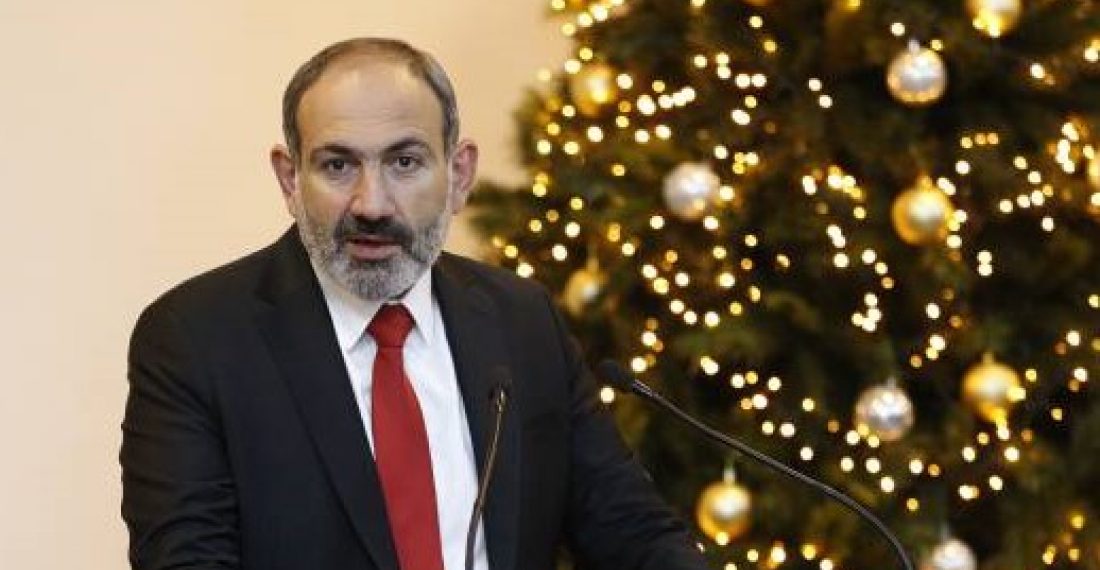Armenian prime minister Nikol Pashinyan on Tuesday (25 December) attended a reception organised by the country's foreign ministry on the occasion of Christmas and new year. Speaking to the assembled diplomats, Pashinyan said Armenia's foreign policy achievements in 2018 had been in the domestic sphere, and particularly the two key democratic victories, "the non-violent, velvet, popular revolution that took place in April-May and the parliamentary elections, which, according to the assessment of international observers, were unprecedented in the history of Armenia and in line with the democratic standards".
Pashinyan said that this popular legitimacy enabled diplomats to focus on the real goals, and not spend their time trying to defend tarnished elections.
Pashinyan highlighted what he thinks are the two most important foreign policy goals:
"I think for the upcoming period our key goal should be raising awareness of the nature of Nagorno Karabakh issue in international community, because unfortunately it's not always and not everywhere that people have the proper information. This is an issue that is really a matter of national security. We must be confident that the international community understands the nature of Nagorno Karabakh issue the way it exists. Unfortunately, today we cannot record this everywhere and it's necessary to seriously work in this direction", he said.
Nikol Pashinyan emphasized the importance of using Armenia's reputation for fostering investments, highlighting the role of the diplomatic corps in this mission.
Nikol Pashinyan reaffirmed that there can be no deviations from democracy in the future, and democratic reforms will continue in 2019, adding:
"A real rule of law must be established in Armenia with an independent judicial system and the authorities of Armenia should pursue foreign policy based on legitimacy, as a Government authorized by the people presenting the interests of the people", he said, adding that being authorized by the people gives great power, "I hope that in 2019 the people will feel the power of your activities, your professionalism, and skills like you today feel the power of having the mandate of the people".
source: commonspace.eu with agencies
photo: Armenian prime minister Nikol Pashinyan addressing his country's diplomats at a Christmas and new year reception at the Foreign Ministry in Yerevan on 25 December 2018 (picture courtesy of the press service of the government of Armenia)






